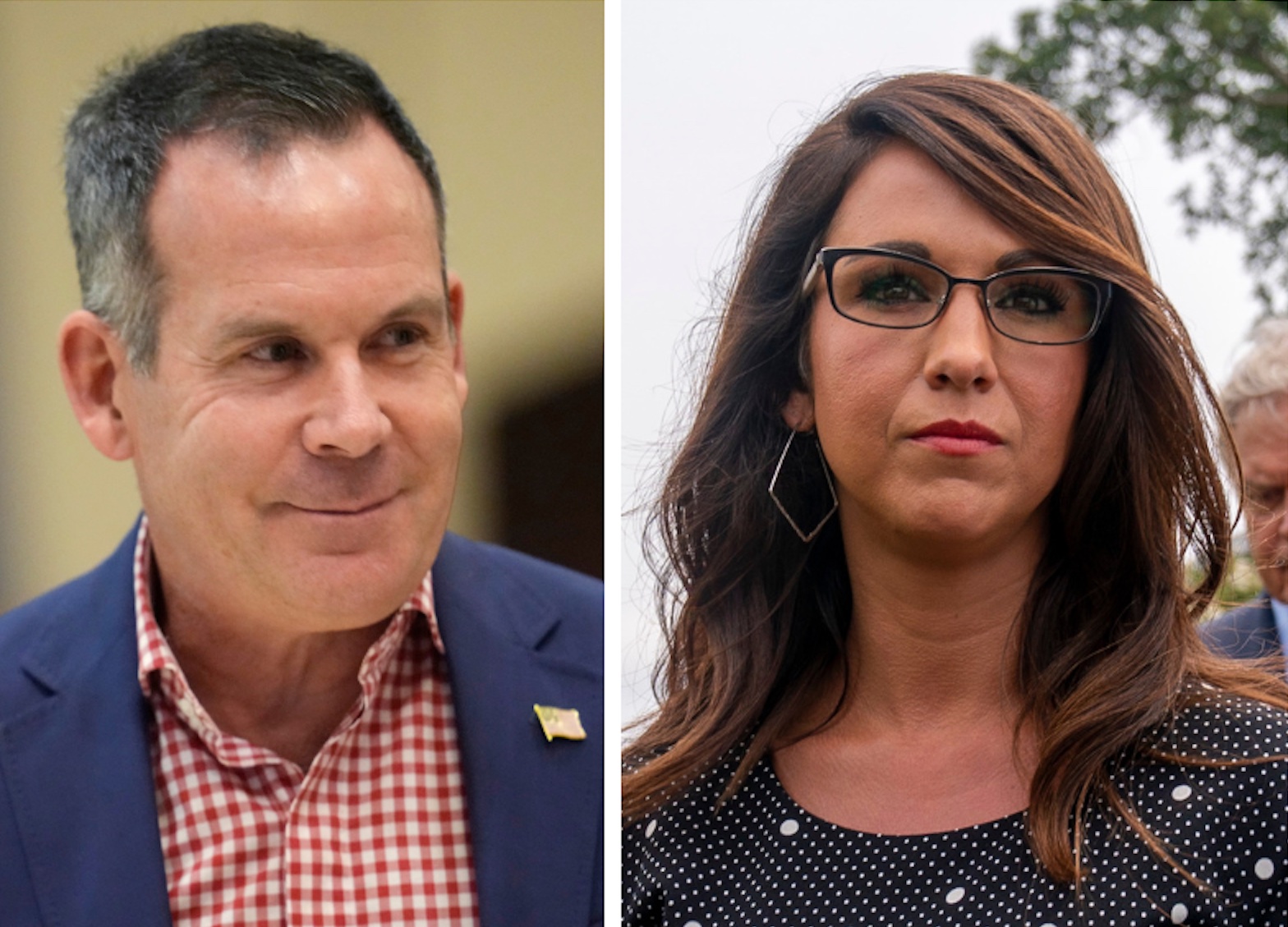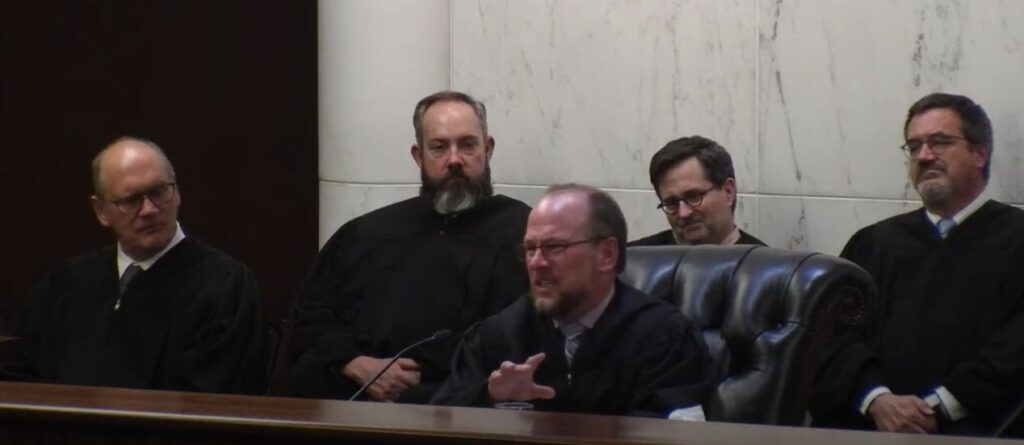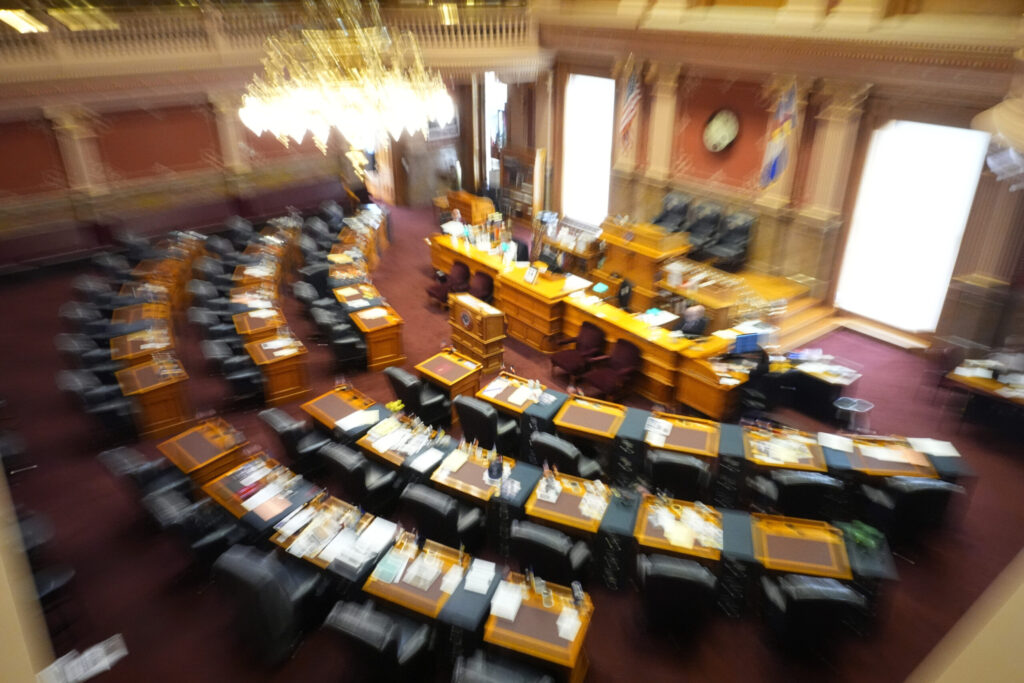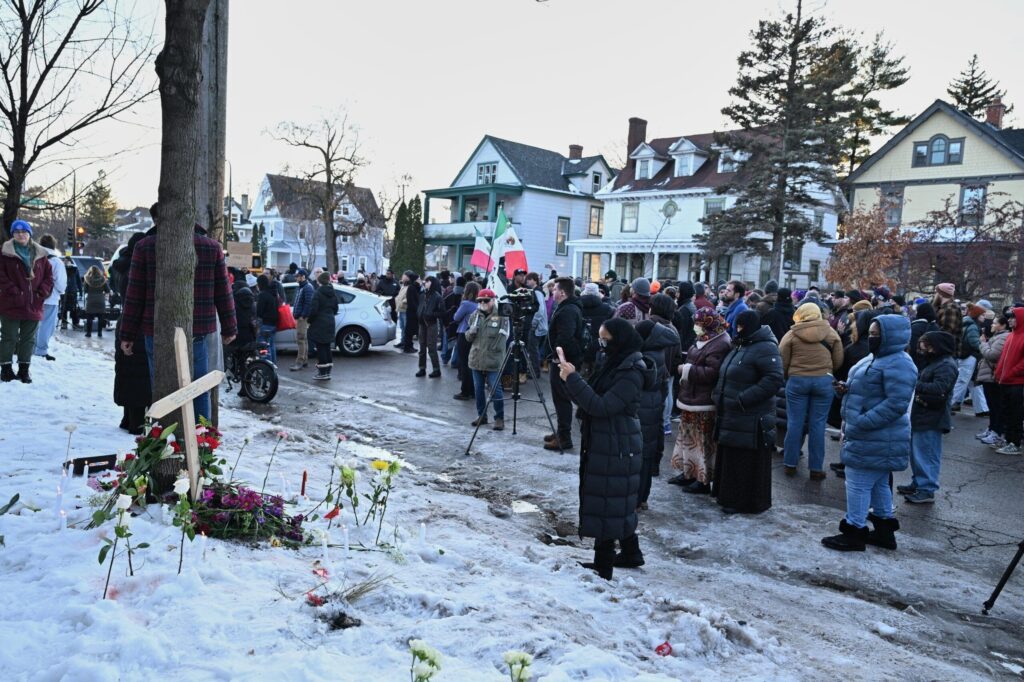Lauren Boebert in statistical dead heat with challenger Adam Frisch, Dem’s internal polling shows
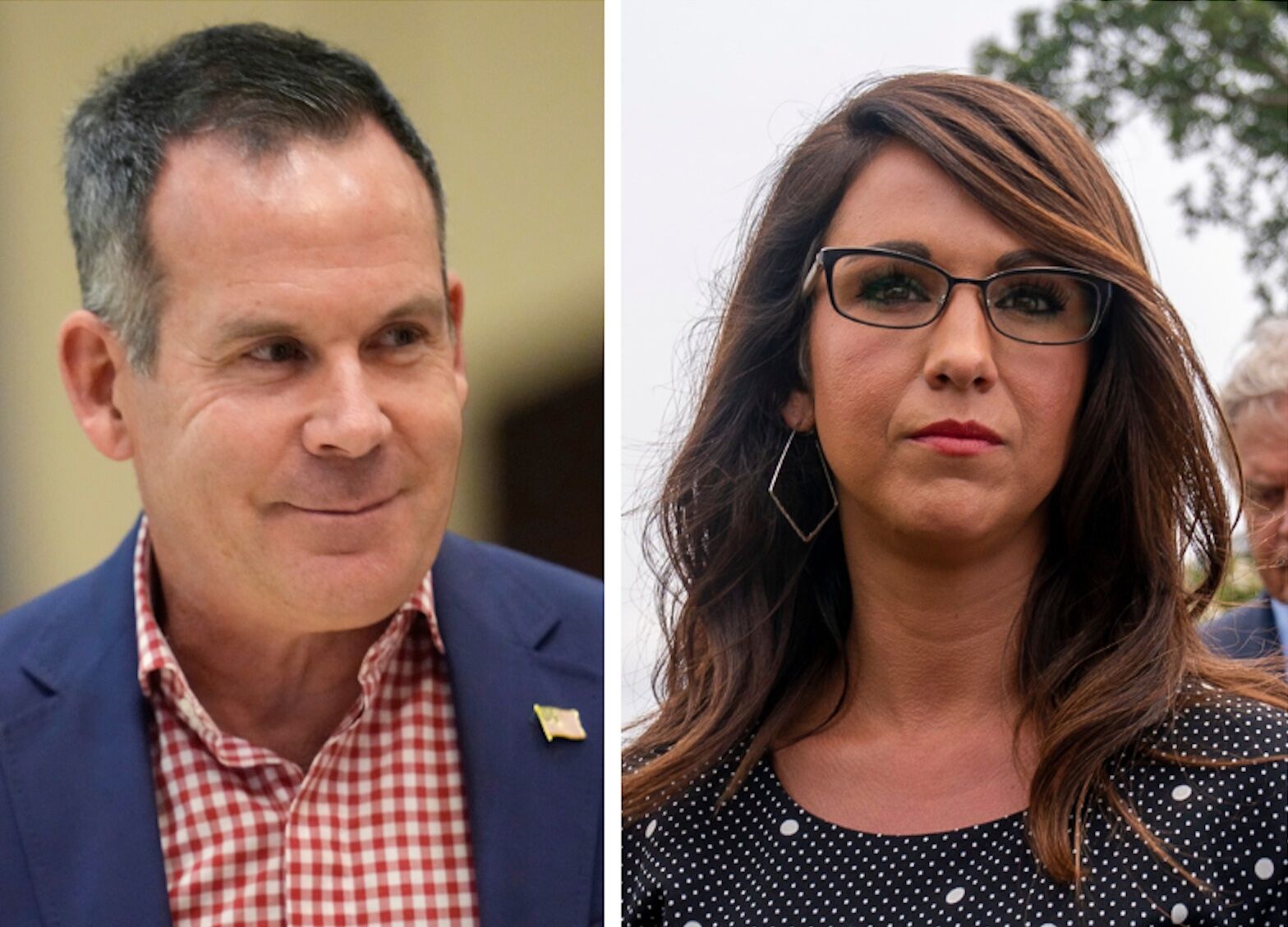
The Democrat running to unseat U.S. Rep. Lauren Boebert has pulled within 2 percentage points of the Republican incumbent in Colorado’s 3rd Congressional District, putting the candidates in a statistical tie only weeks before voting begins in the state, according to an internal poll released Tuesday by Boebert’s challenger.
The poll of likely voters, conducted for former Aspen City Councilman Adam Frisch’s campaign by Keating Research, a Colorado-based firm that works for Democrats, found Boebert leading Frisch, 47% to 45%, within the poll’s 4.4 percentage point margin of error. Another 7% were undecided.
The results mark a 5-point shift in Frisch’s direction since a July survey conducted by the same polling firm that found Boebert ahead, 49% to 42%, with 9% undecided.
Pollsters said the biggest movement since the July poll has been among the Republican-leaning district’s unaffiliated voters, who supported Frisch by an 8-point margin two months ago but prefer the Democrat by a 25-point margin in the most recent survey. Unaffiliated voters, who make up 44% of the district’s active registered voters and 37% of the poll’s sample, support Frisch, 57% to 32%, the new poll found.
Boebert’s favorability rating has dropped, too, the poll found, with 47% viewing the incumbent favorably and 49% viewing her unfavorably, up from 44% unfavorable responses in the earlier poll. Just 4% of voters say they’re unfamiliar with her.
Among unaffiliated voters, Boebert is viewed favorably by 35% and unfavorably by 62%, with 60% of the unaffiliated saying they view her very unfavorably.
Frisch, a wealthy businessman who casts himself as a moderate , is viewed favorably by 38% of likely voters and unfavorably by 28%, with 35% saying they’re unfamiliar with Frisch, down sharply from the 65% of voters who said in July that they hadn’t heard of him.
Pollster Chris Keating told reporters that his client’s favorability rating points toward a winnable race.
“Do the voters who know you, like you?” Keating said during a remote press conference. “That’s the thing that I look for in a candidate that can win – is likability. He’s basically doubled his name ID, and voters like him, so down the stretch that’s only going to get better, too.”
Ballots start going out to most Colorado voters in less than two weeks. They’re due back to county clerks on Nov. 8.
The poll of 500 likely voters was conducted Sept. 28-Oct. 2 using a mix of live telephone interviews and text message. The pollster said the sample represents likely general election voters in the district based on party registration, gender, age, region, education and ethnicity.
“We are going to beat Lauren Boebert,” Frisch said in a statement. “I’ve believed this since I entered the race, but this poll showing that we are tied makes it even more clear that voters in CO-3 want Boebert’s circus to stop and are looking for a better choice to represent their families, their businesses, and their communities.”
Added Frisch: “The people of Western and Southern Colorado deserve a congressperson who will be a workhorse in Washington who is focused on the needs of the district, not a show pony like Boebert who only focuses on herself. I’ll work hard in Washington to protect our water, create jobs, and achieve energy independence.”
Boebert’s campaign didn’t respond to a request for comment.
A spokeswoman for the National Republican Congressional Committee, however, told Colorado Politics that the poll doesn’t represent the reality they’re seeing.
“Democrats have attacked Colorado’s oil and gas industry and destroyed the American economy,” NRCC spokeswoman Courtney Parella said in an email. “Democrats have zero chance of winning this district.”
The suggestion that the outspoken Boebert – a powerhouse fundraiser and one of the most prominent and avidly conservative members of Congress – could be in danger of losing her bid for a second term runs contrary to the partisan lean of the district’s voters. It also goes against the verdict of most national election forecasters, who consider the seat safely in Republican hands.
Election data site FiveThirtyEight’s modeling, for example, puts the chances of Boebert winning in 98 of 100 simulations, while Frisch wins in 2 out of 100.
The race has yet to attract attention from national party committees or major outside groups, but Frisch’s campaign said it hopes the poll results will prompt big-spending committees to get involved.
Boebert won election two years ago by a comfortable, 6-point margin over Democratic nominee Diane Mitsch Bush after upsetting five-term Republican incumbent Scott Tipton in the primary.
She fended off a primary challenge in June from state Sen. Don Coram, a Montrose rancher, by a two-to-one margin. Frisch maintains that the Republicans and unaffiliated voters who voted against her in the primary are part of his coalition of district residents who have grown weary of what he terms Boebert’s “angertainment” approach to government.
But there’s no doubt Frisch is the underdog.
The sprawling district, which covers 27 counties on the Western Slope and across Southern Colorado, including Pueblo County and the San Luis Valley, leans toward Republican candidates by just over 9 points, according to the state’s independent redistricting commission.
The commission altered congressional boundaries ahead of this year’s election due to census results, increasing the Republican advantage by a couple of points.
The Republican jumpstart is based on its voters’ preferences in eight recent statewide elections. In last cycle’s U.S. Senate race, for instance, voters swung toward Republican Cory Gardner by 10.5 points over Democrat John Hickenlooper, who carried the state by about 9 points. In 2016, the district’s’ voters gave Republican Donald Trump a 15.3-point win over Democrat Hillary Clinton, even as she was winning Colorado by about 5 points.
Two years ago, Democrats released polling that showed Mitsch Bush, a former state lawmaker, tied or slightly ahead of Boebert, but the Republican prevailed by about 6 points.
Keating said pollsters in recent years have typically missed voters who support Trump and other Republicans but believes he’s avoided that pitfall.
“Nationally, pollsters are generally wrong because they tend to not have enough less educated voters or they’re not predicting the correct turnout,” Keating said, noting that the new survey for Frisch gave Republicans a 10-point advantage over Democrats, slightly higher than the GOP’s 8-point advantage in the district among registered voters.
“We’re predicting a pretty conservative turnout,” he said. “I believe in my numbers. We believe this is an accurate representation of voters. That’s what we try to do. That’s why we typically are spot on.”
Keating Research has a B/C rating from FiveThirtyEight.com based on a handful of polls conducted in the last decade, with the pollster accurately predicting the outcome of races 80% of the time.
Last election in Colorado, the firm accurately predicted in late October polls that Hickenlooper would beat Gardner and that Democrat Joe Biden would beat Trump, with both polls coming within about a percentage point of the final results. In 2018, a Keating poll conducted just before the election showed Democrat Jared Polis beating Republican Walker Stapleton in the governor’s race by 8 points. Polis won by 10.6 points.
